HOME
"We did not come into the world vulnerable, open, and innocent to be indoctrinated or herded into group-think, to be stamped, filed, catalogued, classified, indexed, organized, stereotyped, artificially and prejudicially promoted or demoted, or prohibited from any experience."
“I urge you therefore, brethren, by the mercies of God, to present your bodies as a living sacrifice, wholly acceptable to God, which is your spiritual service of worship. And do not be conformed to this world, but be transformed by the renewing of your mind, that you may prove what the will of God is, that which is good and acceptable and perfect” (Romans 2:1–2; NASB).
At some point, in reading through this information (if you really are trying to follow the flow of it) your mind is going to slam into a "cultural wall" and will not let you "get" the message that is presented here. It's really O.K., I just wanted to let you know that "it ain't your fault" :-) because your thinking patterns are linear and if you try to vary from the linear you will, most probably, go unconscious, and stay that way.
People today are literate, informed and educated and can no longer be controlled by holding up 'totems' (an object serving as the distinctive mark of the clan or group). We are unlike the people who lived during the times when contemporary religions were first established.
How in the world can a religion proclaim that "God is love" and then hold up a graven image of 'the son of God' brutally impaled upon a cross (to prove it)?
A person feels lonely, a person fills life is meaningless, a person feels fear, a person feels happiness, a person feels unfulfilled, a person feels fulfilled, a person feels accepted by others, while another person feels rejected.
What is the problem? What to do? Where to turn?
These things are all in the field of mind, and it is an ILLUSION man!
It's called maya!
As long as a person in this world continues to seek for his/her bliss in the OUTER world, one will always swing to and fro like a manic depressant.
The only place where all these things will dissolve into a resolution for the mind and spirit, it is Meditation and seeking WITHIN the SELF.
This is the core of the entire teachings of the Bible, the Upanishads, The Baghadvadgita, the Buddhas teachings, the rig veda, Zen, all of them.
ALL of the great teachings of the world are telling you and I to seek WITHIN ourselves for that which we lack for being in the OUTER world of the flesh.
When we constantly live in the world of the intellectual, the emotional and the physical, there will be trouble. These three lower kingdoms must be transcended if one is find true happiness and peace.
All one has to do is look and see how many people are hooked on prescription medications like SSRI'S and Benzodiazapines, and all manner of other drugs, to see that there is a problem in this physical reality, which is an illusion.
Elsewhere on this blog you will all proofs of Biblical meditation and the SELF, it is written all over this blog, because it is the crux, it is the thing itself.
The bible says you are to be IN the world, but not OF the world, do you understand this statement in the Bible?
It means you are NOT to pattern your personality after them, the people of this world, instead you are to pattern your self from the higher consciousness from above and without, and manifest this WITHIN.
Then and only then, will be a Master, until then your still just a Cabin Boy, taking orders from them, but become the Master, and you can steer your ship to you port of destination, truth, wisdom and knowledge.
True masters are those that MEDITATE regularly and this regular meditative practice slowly transforms the mind in the pattern of the greater Cosmic mind, like a fully blossomed flower.
Until then you are like a tumble weed blowing along a remote Arizona highway, just going where ever the wind blows you.
Regular meditation is the best psychologist you will ever have.
Can you do it? Can you sit there without those negative hurtful thoughts entering within your field of thinking? Can you forgive yourself enough to face these bogie's from the North head on, when they attack?
With practice you will forgive yourself of all the wrongs that you committed against the self and others that you love, or that you have harmed. At first these thoughts will terrify you, and make you feel unworthy, and you will abandon meditation.
You must move through this dark night of the soul and endure, if you are a true seeker on the spiritual path, you will have to go through this dark night, there is no escaping this. As you meditate daily, you will slowly find that you are being guided, helped and forgiveness will come, you may cry or sob, but this is natural, just ask the person that you harmed for forgiveness in your mind.
This is the meaning of forgiving seven times seventy, it means to forgive yourself for you past immaturity, and all the trouble that you caused others, and all the damage that you did. 7x7=49, this is the day that your pineal gland is complete.
If you forgive yourself an others, and mean it sincerely, then you will find meditation easier by the day, watch yourself and become an observer, you can stand outside of it all from the observers position, this is the goal.
Still the mind, and god will slay your enemies, the thoughts that arise out of the subconscious mind, the enemy of the North land.
The first step to mystical realization is the leaving of such a defined god for an experience of transcendence, disengaging the ethnic from the elementary idea, "for any god who is not transparent to transcendence is an idol, and it's worship is idolatry"
"God is an infinite sphere who's center is is everywhere, and circumference nowhere"
Thoughts of the mind
from Joseph Campbell
Negative thoughts.
When the lord your god brings you into the land (higher consciousness), which are entering to take possession of it, and clears away many notions before you, the Hittites, the Girgishites, the Amorites, the canaanites, the Perrezites, the Hivites and the Jebusites, even among nations greater and mightier than yourselves, and when the lord your god gives them over to you, and you defeat them; then you must destroy them; you shall make no covenant with the mind, show them no mercy.
Giving your daughters (emotional thoughts), for your sons (higher thoughts). For they would turn away your sons from following me, to serve other gods (lower ego thoughts), then the anger of the lord would be kindled against you, and he would destroy you utterly. (All of your lower mind qualities).
But this shall you deal with them; you shall break down their alters, and dash in pieces their pillars, and hew down their Asherim, and burn their graven images with fire.
For you are a people holy to the lord your god has chosen you to be a people for his own possession, out of all the peoples that are on the face of the earth. Deut 7:1:6
Do you understand this Mythology?, this is what the entire Bible is all about, killing out and destroying these negative thoughts that continually come against you. You must fight for the promised land, the higher conscious state, and take possession of this land, or you will wander through the deserts of Egypt your entire life, and this is the DRY place. Devoid of water (spirit).
The battle is WITHIN, as jesus said; "Your enemies are those of your own house" Your own brain/mind.
Mediation is where the final battle takes place in the field of mind. That's what the story of Revelations is all about.
People lacking in concentration have untrained minds, which the Chinese say are like "monkeys and wild horses," running everywhere. Chi Kung calms the mind through discipline, integrates it with the body, and thereby cleanses the nervous system so that erroneous thinking is reformed, obscuring passions are subdued, and common sense and wisdom arise to guide one's actions.
For thousands of years, Taoists and Chan Buddhists have known that calmness (mental quiescence) and wisdom is like a lamp and its light. Along with its great health benefits, the deep, meditative practice of Chi Kung is an invaluable means of achieving this essential calmness throughout one's total being. Total calm leads to inner awareness, outer awareness and spiritual insight.
Take emptiness to the limit; Maintain tranquility in the center.
the ten thousand things-side-by-side they arise; And by this I see their return.
Things come forth in great numbers; each one returns to is root
This is called tranquility. "Tranquility"-this means to return to your fate.
To return to your fate is to be constant; To know the constant is to be wise.
Not to know the constant is to be reckless and wild;
If you're reckless and wild, your actions will lead to misfortune.
To Know the constant is to be all-embracing;
To be all-embracing is to be impartial; To be impartial is to be kingly;
To be kingly is to be like Heaven; To be like Heaven is to be one with the Tao.
If you are one with the Tao, to the end of your days you'll suffer no harm.
Lao Tzu, Tao Te Ching
You must become an alchemist
Alchemy does not refer to the changing of lead into gold. It symbolizes the transmutation of the Lower Self.
The dull thick mind of the Lower Self must be taught to flash and scintillate with the Intuition of Virgo ruled by Mercury (Quicksilver). Only then can the Will - Atma of Leo begin to transmute the lower desires into the spiritual soul-hunger for unity with the Divine Source.
The alchemical meditation is an inner dialogue with someone who is invisible, as also with God (the Monad), or with oneself, or with one's good angel (genius or Higher Self). Only through meditation can the King (Sol or Sun) and the Queen (Luna or Moon) give birth to the precious child of Wisdom (Christchild or Horus ed.). This is the Stone of the Philosopher.
He who wishes to be initiated into the alchemical art of Wisdom must be devout, righteous, of profound understanding, humane, of cheerful countenance and a happy nature.
The Wisdom of Solomon I
SHE is the LOWER MIND
I was a child of parts, and a good soul fell to my lot; nay rather, being good, I came into a body undefiled. But perceiving that I could not otherwise possess wisdom except God gave her me I said, Give me wisdom. Send her forth out of the holy heavens, and from the throne of thy glory bid her come, that being present with me she may toil with me, and that I may learn what is well-pleasing before thee.
A corruptible body weigheth down the Soul. Who ever gained knowledge of thy counsel except thou gavest wisdom and sentest thy holy spirit from on high. Give me wisdom, her that sitteth by thee on thy throne. When the Soul of a righteous man descends into the dungeon of the physical body she goes down with him and leaves him not until he is brought the sceptre of his Father's kingdom. What is richer than wisdom which worketh in all things.
Her I loved and sought out from my youth, I sought to take her for my bride and became enamoured of her beauty. For she is a breath of the power of God and a clear effulgence of the glory of the Almighty. I love her and choose to have her rather than Light because her bright shining is never laid to sleep. I prayed and understanding was given me, I called upon God and he gave me the Spirit of Wisdom. (7-8)
The Wisdom of Solomon II
She must become the higher mind
What wisdom is and how she came into being I will declare, and I will not hide mysteries from you; but I will trace her out from the beginning of creation, and bring the knowledge of her into clear light, and I will not pass by the truth. A multitude of wise men is salvation to the world.
She gave me an unerring knowledge of the things that are, to know the constitution of the world, and the operation of the elements; the beginning and end and middle of times, the alternation of the solstices and the changes of seasons, the circuits of years and the positions of stars.
She is fairer than the Sun and above all the constellations of the stars: being compared with light, she is found to be before it. She knoweth the things of old, and divineth the things to come: she understandeth subtilties of speeches and interpretations of dark sayings: she forseeth signs and wonders, and the issues of seasons and times.
Her true beginning is desire of discipline; and the care for discipline is love of her; and love of her is observance of her laws; and to give heed to her laws confirmeth incorruption; and incorruption bringeth near unto God.
She is an effulgence of the everlasting light, an unspotted mirror of the power of God and an image of his goodness. (7-8)
The Wisdom of Ecclesiastious
He that hath applied his soul and meditateth in the law of the Most High will seek out the wisdom of all the ancients. He will keep the discourse of the men of renown, and will enter in amidst the subtitles of parables. He will seek out the hidden meaning of proverbs, and be conversant in the dark sayings of parables.
If the great Lord will, he shall be filled with the spirit of understanding; he shall pour forth the words of his wisdom, direct his counsel and knowledge and meditate on God's secrets. He shall show forth the instruction which he hath been taught and shall glory in the law. A man's soul is sometime wont to bring him tidings more than seven watchmen that sit on high on a watchtower. (This refers to the seven chakrams along the spine.)
Blessed is the man that shall meditate in wisdom, and that shall discourse by his understanding. He that considereth her ways in his heart shall also have knowledge in her secrets. Take counsel with the wise. Let thy converse be with men of understanding and let all thy discourse be in the law of the Most High.
Gather instruction from thy youth up and even unto hoar hairs thou shall find wisdom. Come unto her with all thy soul, and keep her ways with thy whole power. Search and seek, and she shall be made known unto thee. And when thou hast got hold of her let her not go. Be willing to listen to listen to every godly discourse and let not proverbs of understanding escape thee. Meditate continually on the Lord's commandments.
The Nature of the Stone
The philosopher's stone or white stone of the Mysteries is the purified Soul or Monad.
The polished stone or ashlar is the Higher Self, Solar Triad, or Individuality.
The rough stone is the Lower Self, Lunar Triad or Personality.
The alchemist's stone is the trikona or covering of the muladhara chakram at the base of the spine beneath which lies the fountain of kundalini, the serpent-fire.
The millstone used for the grinding of corn gives the soul the wheat of experience or staff of life. Hence the use of wheat as a symbol in the Mysteries. Bread, corn or grain is related to Virgo and Intuition ruled by the planet Mercury.
The two mill-stones of Spirit (Atma) and Matter create consciousness or fire by friction. The balance point between the wheels is Libra, related to the Higher Mind. The unmoving centre of the wheel is the Chinese Tao or Way of Enlightenment. The spokes of the wheel are the houses of the zodiac. If four they are the Great Elements of Earth, Air, Fire and Water.
Take the millstone and grind meal. (Is. 47.2)
Transform Yourselves From Dead Stones
The Alchemy of the Self
Carry out the transformation
Of silver into gold,
Raise the Lower to the Higher
And with Mercury be bold.
Go fearless into furnace
With father-lead of black,
Assert red Will of Aries
And nothing you will lack.
The higher gold will glisten
In the rays of Atma-Sun,
The dragon will be conquered
The two shall now be One.
Behold the seals, once broken
Will fuse as lamp of light,
Borne by the Hermit
In the depths of Spirit-Night.
The sunlit skies will open,
And a chariot of fire,
Will carry yet the Pilgrim,
To regions ever higher.
To Sun and Stars exultant,
And elders 'fore the Throne,
Bowed down before the Light of Lights,
That shines from Lapis Stone.
(© J.K.R.)
The Alchemical Key to the Christian Mysteries
"Take silver and gold and make crowns." (Zech. 6.11)
The following table gives the key to the alchemical process in man which is represented by the Spiritual marriage of the Sun and the Moon.
The Sun represents as ruler of Leo the Atma or Spirit in man. It also symbolises the Higher Self as a Triad. The Moon is the Lower Self or Personality Triad.
The Lead of the Lower Triad (under the control of Saturn the Initiator, Lord of the Bridge) is transformed into the Spiritual Gold of Atma - Leo ruled by the Sun, through the action of Mercury or Quicksilver, which is the Intuition in Man. (See Jer. 6.29)
Through meditation the consciousness of the Lower Self (Personality) is given spiritual truths by the Intuition so that the alchemical marriage of the Sun and Moon can be achieved. Man becomes God
By self purification and meditation the soul can be freed from the rock of the physical body as Andromeda was by Perseus. The winged horse is the purified (white) soul power. The sea is the Cosmic Ocean of Pisces. The monster is the desire-mind or Kama-Manas, entangled with the Astral Plane.
The Purification of Silver:
The Fiery Furnace (A)
He shall sit as a refiner and purifier of silver. (Mal .3.3) (The Higher Self can assist in the purification of the Personality.)
I will bring the third part through the fire, and will refine them as silver is refined, and will try them as gold is tried. (Zech. 13.9) (The third part is the Personality Triad. The other two parts are the Higher Self or Individuality, and the Lower Self or Personality. )
There was lifted up a talent of lead (Saturn) and this is the woman (soul) that sitteth in the midst... (Zech. 5.7) The lead of Saturn represents the materialistic nature of the Lower Self. It is transmuted by the energies of the Soul (woman). The purification is achieved by the purifying powers of the mind which can remove the dross from the silver of the Lower Self. This purification occurs within the oven or furnace.
The day cometh, that shall burn as an oven. (Mal. 4.1)
He shall kindle a burning like the burning of a fire. (Is. 10.16)
Unto us a child is born… with burning and fuel of fire. (Is. 9.5-6) I have created the smith that bloweth the coals in the fire. (Is.54.16) (This smith is Hephaestus, Govanon and Tubal Gain, the worker in brass, or Hiram. (See I Kings 7.14)
Can a man take fire in his bosom. (Ecc. 6.27)
The Purification of Silver:
The Fiery Furnace (B)
Shadrach, Meshach and Abednego were cast in the fiery furnace. (Dan. 3.20) Nebuchadnezzar, the king who ordered this said:-
"Lo I see four men loose, walking in the midst of the fire… and the form of the fourth is like the Son of God." (Dan. 3.25)
The three men are the triune powers of the Self .
Hence the reference to the Son of God. The furnace was heated "seven times more" (Dan. 3.19) because the serpent fire has to rise from the base of the spine through the seven main chakras, depicted elsewhere in the Bible as a scroll or stone with seven eyes. The furnace represents the alchemical purification of the Lower Self or Personality.
Just as a high temperature caused by a fever can burn out the dross or impurities in the physical body so can tu-mo (Chinese or Tibetan term for the flow of psychic energy as heat) warm the physical body in extremely cold weather.
The fire-walking ceremonies held in Fiji and Hawaii demonstrate the power of the mind over heat, internal or external. The furnace of the alchemists is not an external thing. It resides within the body and is similar to the stove mentioned in certain texts in Taoist yoga. The fire is kundalini, and the life energies (or heat) are pranas.
Gold, Silver, Brass and Iron (A)
Iron (Mars) is taken out of the earth (Capricorn) and brass (Libra) is molten out of the stone (Capricorn). There is a vein for silver (Moon) and a place for gold (Sun). (Job. 28.1-2)
The gold, silver, brass and iron shall come into the treasury of the Lord. (Josh. 6.19)
The Heaven that is over thy head (Higher Self) shall be brass (Libra) and the Earth that is under thee shall be iron (Lower Self of Scorpio-Dan). (Deut. 27.23)
A land whose stones are iron (Mars) and out of whose hills thou mayest dig brass (Libra). (Deut. 8.9) (This refers to the marriage of Mars-Scorpio, the Desire Mind, with the Higher Mind of Venus-Libra. Mars and Venus were caught in a net by Hephaestus the smith, fashioner of the weapons of the gods or the powers of the Spirit. Hephaestus lives in the volcano where kundalini, the serpent-fire, dwells at the base of the spine. This is the alchemical furnace.)
He shall cast them into a furnace of fire (kundalini) then shall the righteous shine forth as the Sun (Leo-Atma). (Matt. 13.42-43) The silver and gold are hid in the earth of the tent (of the physical body which is the alchemical alembic or furnace). (Josh. 7.21)
Man shall cast his silver and gold into the rock (of the furnace). (Is. 3.20-21) This is the marriage of the Higher Self (Leo-Fire-Sun) with the Lower Self (Scorpio-Water-Moon).
Gold, Silver, Brass and Iron (B)
Libra, ruled by Venus, represents the Higher Mind. First of all the Lower Self has to be purified.
Take away the dross from the silver. (Ess. 25.4)
Thy silver is become dross, I will purge it. (Is. 1.22 & 25) Then the Lower Self is weighed in the balance of the Scales (Libra) exactly as depicted in the Egyptian Book of the Dead (trans. Budge).
They weigh silver (the Lunar Lower Self) in the balance (Libra). (Is. 46.6) A potsherd, (the physical body) is covered with silver dross. (Ecc. 26.23) It is reprobate silver. (Jer. 6.30) Everyone made an offering of silver. (Exod. 35.24)
Hiram, the widow's son (the power of the Higher Mind or Libra-Venus) is a worker in brass. (I Kings 7.14) Jeremiah speaks of "the pillars of brass and the cauldron." (Jer. 52.18) Ezekiel advises us to "take thee balances and weigh.
This is the reasoning or balancing power of the judicial Higher Hind, the integrative consciousness. (Ezek. 5.1) We must meditate to raise consciousness to this level where we can obtain intuitive guidance from the Higher Self.
The pillars of brass cast by Hiram (I Kings 7.15) are the Taurus-Scorpio and Aries-Libra axes of Venus-Mars, related to the spinal column.
The Alchemical Process in Genesis (A)
Abraham sees a ram (Aries) caught in a thicket. (The Aries-Libra axis down which the Monad descends.) (Gen. 22.13) The ram is then sacrificed in place of Isaac. Isaac married Rebekah who gave birth to Esau and Jacob, (Gen. 25.25) Esau who was red (Aries - Monad) sold his birthright to Jacob. (Gen. 25.33-34) Esau is the Monad in Gemini (the Twins). The other twin is Jacob who has to descend into manifestation as the Lower Self.
The servant of Abraham took ten camels and departed. (Gen. 24.10) (This is the descent of the Soul through the ten planes from Aries to Capricorn. ) The servant put his hand under the thigh of Abraham. (Gen. 24.9) The servant (consciousness) has descended from the head (Aries-Ram) to the base of the spine (Scorpio - thigh).
The servant (Mind) met Rebekah (Soul) at the well (muladhara chakram). (Gen. 24.43) He gave her silver (the Lunar Personality) and gold (the Higher Self) to effect the alchemical marriage. (Gen.24.53) Then Rebekah married Isaac, the Monad. (Gen. 24.67) The death of the mother at age 40 (Gen. 24.67) is the killing out of the Lower Quaternary (4) of the Personality.
Jacob's ladder (Gen. 28.11-12) is the spine of man along which he saw angels ascending and descending.
The stone he slept on at Haran is the Lapis Philosophorum or Philosopher's stone needed for the alchemical transformation of the powers of the Lower Self into the Higher or Solar Triad. It is the pineal gland of the brain.
Jacob set up the stone pillar ( Pineal gland) and (spine) and poured oil upon it. This oil is the spiritual energy needed to bring about the unification of the Higher and the Lower Selves
For man (the Higher Self) shall leave his Father (the Monad) and his Mother (Virgin Mary, Pisces) and cleave to his wife (the Lower Self). (Gen. 2.24) Thus the descent into manifestation is accomplished.
Then Jacob comes to Shalem (Venus or Salem) and erects an altar to Elohi-Israel (the Elohim). (Gen. 33.18-20)
AGAIN
What does it mean when Jesus said to forgive SEVEN times SEVEN?
To forgive seven times seven is to forgive, by the flame of Christ/Buddha, the wrongs and injustices practiced by the self upon the self through the perversion of the seven planes of consciousness in the seven chakras.
Jesus instructed Peter that to forgive seven times seven was not enough. Seven times seven was not for the integration of the soul into the wholeness of the Christ/Buddha.
Jesus taught his disciples that there is a need for the multiplication of the flame of forgiveness by the power of ten, as well as by the power of the seven.
Seven times seven, the period of Buddha's enlightenment under the Bo tree, is for the mastery of the seven planes of being and the mastery of these planes in the seven bodies of man, the seven chakras or seals.
The wisdom of J Krishnamurti and Osho.
Defining Meditation
What is Meditation
There are many ways to understand and define what meditation is, and today I want to present to you the highest and purest way of looking at this most important of human phenomenon. Understanding meditation via many different angles and approaches deepens your understanding about this sublime activity, and given that meditation holds the key to Heaven, it is essential that you encounter the Truth of meditation in this life of yours. Below you will find the great spiritual master J. Krishnamurti explain what meditation is in his own words. Following the excerpt I will provide some analysis and thoughts on this definition of his.
J. Krishnamurti Gives Definition of Meditation
Author: J. Krishnamurti
Book: Meditations
Page: 35-36
Meditation is the flowering of understanding. Understanding is not within the borders of time; time never brings understanding. Understanding is not a gradual process to be gathered little by little, with care and patience; understanding is now or never; it is a destructive flash, not a tame affair; it is this shattering that one is afraid of and so one avoids it, knowingly or unknowingly.
Understanding may alter the course of one’s life, the way of thought and action; it may be pleasant or not but understanding is a danger to all relationship. But without understanding, sorrow will continue. Sorrow ends only through self-knowing, the awareness of every thought and feeling, every movement of the conscious and that which is hidden. Meditation is the understanding of consciousness, the hidden and the open, and of the movement that lies beyond all thought and feeling.
Definition of Meditation Analysis:
Let’s discuss this differently today, let’s do it in the form of questions. This will give you a chance to think things over for yourself and thus, lay the foundation for real understanding to take place. Ready to be tested ?
Question #1. Does meditation have an ending?
Answer:
This is important to understand. Meditation is a process of self-knowing. It is forever, it does not have any ending. In other words, it is the constant light which reveals the activities of the mind and ego. So don’t think of meditation as an effort to reach some goal. Make awareness of your inner and outer environment the goal itself. This moment to moment awareness of "what is", brings the flowering of understanding, which is what meditation is, and takes you beyond.
Question #2. Does Meditation occur on earth or heaven?
In other words, does meditation take place in our ordinary dualistic world, or does it take place in the non-dual world of enlightenment (Nirvana, Moksha, etc)?
Answer:
The answer is both. Meditation starts with simple awareness of the confused, groping, dualistic, petty, selfish mind, and as this mind diminishes and withers due to the light of awareness, meditation starts to move into the dimension which lies beyond. This is revealed by the last line of the excerpt above.
Another article, more focused on this aspect of meditation is What is Meditation by J. Krishnamurti.
Question #3. Why Meditate?
Answer:
I have written many articles that point out the great benefits of meditation. You will find a list of these below, but the answer is really quite simple. The only way to end sorrow is meditation. Nothing else will do it, as everything else in within the sphere is thought, and all that which is within the sphere of thought, ends in sorrow. This is the First Noble Truth of Lord Buddha. The only way to be free of that sphere, is through meditation.
If freedom from suffering is not motivation enough, here are some articles detailing other side benefits of meditation to get you motivated and started.
Health Benefits of Meditation
Top 10 Profound Benefits of Meditation
Homework for Understanding Meditation:
The only way to really understand what is being said with regard to the "explosion of insight" that meditation brings, is by experiencing it for yourself. This is my greatest wish for you, that you experience and therefore see the truth of what meditation is, and experience the subsequent shift in consciousness that takes place.
So don’t delay in experimenting and exploring this gift of meditation. For this coming weekend, try as best you can to be aware of each thought and feeling that takes place, and try to understand the story behind each. I know that is almost impossible to do, but just do the best you can. That way you will be fulfilling your true purpose here on Earth, which is to practice self-knowing and move beyond the ordinary dualistic mind. That way you will discover Heaven on Earth.
For more information on this process of meditation and the explosion of insight, you can also read the following 2 articles.
Mind Meditation | Most Advanced Meditation Technique Silent Mind Meditation Technique
There is an important thing to know when doing meditation have no expectation. expectation will be like a block in your path of progressing in meditation.
Meditation: Science of mastering the mind.
Why do Meditation: There are a whole host of reasons. Reasons include liberation, elimination from physical, emotional, and even causal pain and suffering (Karma). Non spiritual phenomenal, like money, vitality, longevity, insight, discrimination, immortality, and even deathlessness.
Two of my favorite Meditations: 1) Mindfulness-allow physical attachments, emotions, thoughts, ideas, physical sensations, etc. to pass through the mind, without attachment. 2) Visualization of how you want your life to become. Visualize yourself the way you want, with all relationships, health, intellect, creativity, jobs, family, money, etc. that you want, doing the things you want.
We can talk about "oneness" until the cows come home.
But how do we actually separate ourselves from others? How? The pride out of which anger is born is what separates us. And the solution is a practice in which we experience this separating emotion as a definite body state. When we do, A Bigger Container is created.
What is created, what grows, is the amount of life I can hold without it upsetting me, dominating me. At first this space is quite restricted, then it’s a bit bigger, and then it’s bigger still. It need never cease to grow. And the enlightened state is that enormous and compassionate space. And how do we know where this cut-off point is? We are at that point when we feel any degree of upset, of anger. It’s no mystery at all. And the strength of our practice is how big that container gets.
This practice of making A Bigger Container is essentially spiritual because it is essentially nothing at all. A Bigger Container isn’t a thing; awareness is not a thing; the witness is not a thing or a person. There is not somebody witnessing. Nevertheless that which can witness my mind and body must be other than my mind and body.
If I can observe my mind and body in an angry state, who is this "I" who observes? It shows me that I am other than my anger, bigger than my anger, and this knowledge enables me to build A Bigger Container, to grow. So what must be increased is the ability to observe. What we observe is always secondary. It isn’t important that we are upset; what is important is the ability to observe the upset.
As the ability grows first to observe, and second to experience, two factors simultaneously increase: wisdom, the ability to see life as it is (not the way I want it to be) and compassion, the natural action which comes from seeing life as it is. We can’t have compassion for anyone or anything if our encounter with them is en snarled in pride and anger; it’s impossible. Compassion grows as we create A Bigger Container.
Zen Approach to Spiritual Test & Spiritual Growth:
Following are the points that I would like to highlight from the excerpt:
1. Spiritual Growth:
The art of observation is the way to spiritual growth and freedom. This is the heart of conscious living. Live with as much moment to moment awareness as you can. The more you are able to remember to witness, to observe, to be aware, the more you will grow spiritually. As Joko puts it, the enlightened state is simply a vast quiet space, from where there is just witnessing.
2. Spiritual Test:
According to Zen, an upset is an opportunity and a test. It is an opportunity to practice awareness and grow your ability to observe. Awareness of your mental, emotional and physical states. The upset is also an indication of where you are on your spiritual journey. It is an excellent spiritual test. The more easily you are upset, the more it indicates that you have spiritual work that needs to be done.
3. Rewards of Spiritual Living:
Finally, Joko points out the rewards of Zen practice and spiritual living. Wisdom and compassion. I will add to that joy. The deeper your practice goes, the more access you have to the vast silence within, the more wisdom, compassion and joy you will have.
From: Zen Mind, Beginner’s Mind
Author: Shunryu Suzuki
Chapter: Nothing Special Pages 47 - 49
Publisher: Weatherhill
Zen Master Shunryu Suzuki explains
"It is kind of mystery that for people who have no experience of enlightenment, enlightenment is something wonderful. But if they attain it, it is nothing. But yet it is not nothing. Do you understand? For a mother with children, having children is nothing special. That is zazen.
So, if you continue this practice, more and more you will acquire something - nothing special, but nevertheless something. You may say "universal nature" or "Buddha nature" or "enlightenment." You may call is by many names, but for the person who has it, it is nothing, and it is something."
"While you are continuing this practice, week after week, year after year, your experience will become deeper and deeper, and your experience will cover everything you do in your everyday life. The most important thing is to forget all gaining ideas, all dualistic ideas. In other words, just practice zazen in a certain posture. Do not think about anything. Then eventually you will resume your own true nature. That is to say, your own true nature resumes itself."
Relax and let things happen naturally. That is the essence of what Master Suzuki is saying above. As you continue with your meditation practice, on its own, unexpectedly enlightenment will gently blossom. Nothing more is needed except earnestness.
Sincerely continue on, without contributing to gaining ideas and dualistic ideas. This is the core of Zen and the core of Advaita Vendanta. Don’t contribute to reward oriented thinking and don’t contribute to ego-centric thinking. In other words, don’t let behavior betray belief. Live as much as possible as if all is One.
If you see yourself as a separate person, you will see lots of separate people, but if you see all as just a part of you (or everything as just an expression of the Universal Oneness) then that dramatically changes the scenery.
Don’t emphasize the ego or chase results, instead just reside as a detached witness, be the observer, silently watching everything play itself out. At the end everything will take its natural place. The person that you think you are will go about his or her life spontaneously and the Oneness will be where your awareness is established - that is true zazen.
As Zen-ji points out, one of the keys to Zen Meditation is to practice without any emphasis on gaining ideas and to approach all things with a non-dual attitude. Whether it be heaven or hell, to not lose one’s composure and remain undisturbed by the storms life throws at you. The article Shunryu Suzuki Speaks on Enlightenment and Zazen Practice goes into this idea in greater detail. In addition, this article Zen Meditation Technique - Free Guided Meditation Book for Daily Practice Ch 1 will guide you step by step on how to practice this most profound meditation.
In the article Shunryu Suzuki Speaks on Enlightenment & Zazen Practice, Master Suzuki explained how to approach Zazen (Zen Meditation Practice). He explained that one should simply do one’s daily meditation, while forgetting about all gaining ideas and all dualistic ideas.
This same approach should be applied to your Yoga practice. Just do your Yoga practice with full awareness and don’t place emphasis on goals or results. Just remain a silent witness during your practice and allow everything to progress naturally. If you are sincere, eventually the stillness will emerge and the blossoming of Truth will occur.
The bible puts it thusly "those that are first will be last and those that are last are first"
Osho Quote On Happiness & Simply Being Yourself
Commentaries on the Masters of Meditation
The following inspiring quote is from the great Mystic Master Osho (Rajneesh).
"Look at the trees, look at the birds, look at the clouds, look at the stars and if you have eyes you will be able to see that the whole existence is joyful. Everything is simply happy. Trees are happy for no reason; they are not going to become prime ministers or presidents and they are not going to become rich and they will never have any bank balance. Look at the flowers - for no reason. It is simply unbelievable how happy flowers are."
FUNDAMENTALLY JUST HAPPY! Remember this statement. It is the reward of a meditative life. It is important here to differentiate between pleasure and happiness. Pleasure being something derived through some cause, and by happiness here meaning a state of joy without any cause. This joyfulness naturally emerges. It starts to flow from deep within and in it you simply rejoice and celebrate life.
This happiness comes when you simply reside as yourself. The trees are not only not trying to become prime ministers, they are also not trying to become the stars and the stars are not trying to become flowers. They are all residing as themselves. Thus, there is freedom from comparison and freedom from chasing "the other".
There is no sense of feeling "less" or something lacking, which is brought about through the insanity of measuring against some fictitious ideal, or another. This means that you don’t have to try to become something other than who you are. In Zen speak - the frog becomes the frog.
If fundamental happiness was not enough, one more most beautiful thing starts to happen when you reside as yourself and joy starts to spontaneously flow, it gives birth to the miracle of Love.
Meditation Technique
Control the Mind and Thoughts
Mindfulness, choice-less awareness, being in the moment, attention, observation, listening, seeing, etc, are all just part of the Art of Meditation, and at the heart of meditation lies the mind. Specifically thoughts, and meditation can be seen as an art which brings about the necessary insight for the cessation or quieting of thoughts.
This stillness within, then allows our vast nature to be encountered and appreciated.
I titled this article as "control of the mind" and am sure there are many who would object to the use of the term "mind control" when it comes to the field of meditation, so let me explain what I mean by it before going into the technique itself.
By "control of the mind" here, I am indicating an action that helps in the quietening of the thinking process and thus, allowing for the deeper observation of our consciousness. So, although we are not imposing control on the mind and thoughts via force, we are creating a scenario whereby the mind is being affection (in this case stilled).
Who better to explain this meditation technique and it’s benefits and importance, than the great spiritual teacher Jiddu Krishnamurti. So here is a quote from him that explains this simple technique, which assists in "controlling" the mind and quieting the brain.
"If you can't meditate in a boiler room, you can't meditate."
Meditation Technique to Control the Mind
Title: The Wholeness of Life
Author: J Krishnamurti
Publisher: HarperSanFrancisco
Ch/Page: Chapter XIV / Page 194
In enquiring, can one observe without any movement of the eye? Because the eye has an effect on the brain. When one keeps the eyeballs completely still, observation becomes very clear because the brain is quietened. So, can one observe without any movement of thought interfering with one’s observation?
It is only possible when the observer realizes that he and that which he is observing are one - the observer is the observed. Anger is not different from me - I am anger, I am jealousy. There is no division between the observer and the observed; this is the basic reality one must capture. Then the whole of consciousness begins to reveal itself without the making of any effort. In that total observation there is the emptying of, or the going beyond, all the things that thought has put together - which is one’s consciousness.
Analysis and Discussion:
So the meditation technique being suggested here is to keep the eyeballs absolutely still, when you are bringing your attention and energy to the observation of the thinking process. In meditation, specially Zazen (Zen Meditation Technique) or other seated meditations, stillness of body is demanded, but here it is being taken one step further, and the suggestion is that the eyeballs be kept absolutely still as well and that this will extend control over the mind and thoughts - this will help silence the brain.
When it comes to meditation, the only way to really understand is to dive in and explore. Reading, talking, discussing, etc, although useful, will only help you go so far on the path to Self-Realization, so go ahead and experiment with the technique indicated above and see for yourself the truth of it.
Be Mindful!
10 THINGS TO DO
Be by yourself: We should make some time for time alone. One should try to just be alone without stimulation. Be quiet and be awake. Listen to the breath. Listen to the quiet. Listen to the noise. Listen to all that is part of your world. Do not criticize or judge or even identify, just listen.
This is essential.
Be outdoors, in nature: Connect with the physical world. Smell the air, feel the earth. See the animals. Listen to the rustle of the leaves. We are of the material world and so we should fully grasp it’s beauty.
Daily Meditation: Most important! (See #’s1, & 7) If you master meditation, you master yourself. Your mind becomes your servant and your soul becomes your master. Wake Up!
Meditate! Do not sleep.
Meditate! Do not dream.
Meditate. Do not worry.
Meditate!
Daily, Account for yourself: What did you do today? Reflect back on your day before you sleep, from the time you woke up to bedtime. See how you acted, what have you said, how have you said it, what effect have you had on others, what are your thoughts, honestly. Reflect on the challenges and your emotional reactions. Did you respond too quickly, did you really listen, were you honest in response? It will balance your life; prevent emotions from invading your subconscious mind and disturbing your sleep.
Do Something Hard: Go outside your comfort zone. Take a deep breath and risk an act that is difficult, nearly impossible for you. Have the courage to do those things that you know you need to do, but have been able to avoid. Call the person you have not spoken to in years. Clean up a disgusting mess left by a stranger. Relate to the crazy person who is alone in their madness.
Do what needs to be done: Don’t delay. Now, this moment is a challenge to you! Meet it and life begins, expands, blooms, BEGINS. If you hesitate, it blocks you, and stops you from moving on. Listen to the inner voice that prompts you, it is your intuition and if you are doing a daily sadhana it is always right, always.
Get up EARLY: the amrit vehla, the hours before dawn, are the best if not the only time for a daily sadhana e.g. meditation, yoga or other spiritual practice.
Laugh: This, along with #10 is essential to a happy life. Relax and enjoy yourself daily. Endlessly pursuing pleasure is exhausting and pointless. You must really be able to laugh and be happy. Be content and grateful, this is happiness. Be full of joy and humor but do not go overboard. Spend time in healthy entertainment everyday. It is important.
Serve Someone: Everyday do something good for someone else. Serve the humblest person you know. Put yourself at their feet and do something that will make them feel better. They are the first consideration. You are the last. Do something good that no one knows about, no one.
Sweat Everyday: Get some form of exercise that forces you to exert yourself –it will keep the body in good shape. Yopu are not your body, but your body is the vehicle through which you live, so treat it like a temple, take care of it.
Jiddu Krishnamurti Quote on the Mind & Meditation
Title: The Wholeness of Life
Author: Jiddu Krishnamurti
Chapter: Chapter VI (Page 159)
Published By: HarperSanFrancisco
Quote From J. Krishnamurti:
"Reason and Logic have not solved our human problems, and we are going to find out if there is quite a different approach to all the problems and travails of life. We shall come upon something that is beyond reason; for reason has not solved any of our political, economic or social problems; nor has it solved the intimate human problems between two people.
It becomes more and more obvious that we live in a world that is going to pieces, that has become quite insane, quite disorderly and a dangerous place to live in. Up to a point we must reason together, logically, sanely, holistically; then, perhaps, beyond that point, we shall be able to find a different state, a different quality of mind, not bound be any dogma, by any belief, by any experience and therefore a mind that is free to observe and through observation see exactly "what is" and also find that there is energy to transform it."
The above quote is full of deep insights and practical guidance on how to walk the path to spiritual enlightenment. In this quote, Krishnamurti is pointing out the fact that first you have to notice that something is amiss.
That, I know is putting it lightly. Without going into the long list of problems that plague us today, I think it would suffice to say that things are quite a mess, both within and without. Recognizing this, we see the need for change, and thus embark on our spiritual journey.
For this journey, Krishnamurti does not rule out the value of logic and reason. In fact, logic and reason have a role to play in bringing us to a certain point of understanding and maturity, unfortunately though they cannot bring about the transformation within us, which would lead to compassion, joy and freedom.
Moses is the intellect that leads one to the promised land, the renewed mind.
This transformation that Krishnamurti is alluding to above, is the freedom from duality. The freedom from the false sense of separation, and logic and reason, which belong to the thinking apparatus, are unable to carry us to this state. Duality lies in our thinking itself, and although logic and reason can give us clarity of thought, it cannot go beyond that. Here he then indicates that what is needed is the power of direct observation.
Direct observation of things just as they are, reveals the false in the false. This seeing of the false (separate self) in the false (dualistic thinking) requires energy. This is the energy of acute awareness and swift intelligence. It is not seeing via logic and reason, it is perceiving directly that "which is", in all its complexity, from moment to moment. This my friends is meditation.
If you want joy, compassion and wisdom, then meditate.
From: Krishnamurti - The Wholeness of Life Author: J Krishnamurti
Chapter: Part II - Chapter V - Pages 176-177
Published By: HarperSanFrancisco
Quote From J. Krishnamurti:
"In consciousness there is the good and the bad; the bad is increasing; it is increasing because the good has become static, the good is not flowering. One has accepted certain patterns of what is thought to be good and one lives according to those patterns.
So, the good, instead of flowering, is withering and thereby giving strength to the bad. There is more violence, more hatred, there are more national and religious divisions; there is every form of antagonism, right through the world. It is on the increase because the good is not flowering.
Now, be aware of this fact without any effort; the moment one makes effort one gives importance to the self, which is bad. Just observe the actual fact of the bad without any effort, observe it without any choice — because choice is a distorting factor. When one observes so openly, so freely, then the good begins to flower. It is not that one pursues the good and thereby gives it strength to flower but when the bad, the evil, the ugly, is understood, completely, the other naturally flowers."
This particular quote gives a very nice framework from which one can understand meditation and spiritual growth. The essence here is that you cannot do anything more than master the Art of Observation. Once you master this art, your progress is automatic. Goodness is not sought, it just flows. You job is simply to develop the ability to see without distortion. That’s all. See things exactly as they are through and through. For this one must approach the fact without any bias or motive. One must just simply look carefully.
Let’s try it right now. Let’s not just discuss endlessly. Close your eyes and look right now at the thoughts that are moving in your mind. Without judgment, just observe what is going on. See yourself making the effort to watch your thoughts.
See yourself getting lost for a few moments and then recovering and regaining attention. See the desire to witness taking shape and being indulged in. Guess what, goodness is starting to flow. That’s right, awareness is the arch enemy of the "bad".
Why? Because it is the one thing you can do that does not feed it, and unfed, It starts to wither. So the framework for spiritual growth is simple, either you attend and allow goodness to flower or you don’t and instead strengthen the "bad". The direction to go is a no-brainer. Just make sure you don't go in the direction of any Church.
Krishnamurti Quote
Jiddu Krishnamurti on Being Nobody
These days the Pope is visiting the US and it reminded me of a dialogue between Krishnamurti and the then Pope, when they had once met. I don’t recall the dialogue exactly or where I had read it, but it went something like this.
The Pope upon meeting Krishnamurti indicated that he had heard of him as the famous Indian philosopher and then proceeded to ask Krishnamurti exactly who he was?
To which Krishnamurti had replied, "I am nobody."
I don’t recall there was anything more in that dialogue.
Here is part of a great chapter from Krishnamurti’s Notebook, where he speaks on what all this business of being nobody is all about.
From: Krishnamurti’s Notebook
It seems so impossibly difficult to be simple, to be what you are and not pretend. To be what you are is in itself very arduous without trying to become something, which is not too difficult. You can always pretend, put on a mask but to be what you are is an extremely complex affair; because you are always changing; you are never the same and each moment reveals a new facet, a new depth, a new surface. You can’t be all this at one moment for each moment brings its own change. So if you are at all intelligent, you give up being anything.
You think you are very sensitive and an incident, a fleeting though, shows that you are not; you think you are clever, well-read, artistic, moral but turn round the corner, you find you are none of these things but that you are deeply ambitious, envious, insufficient, brutal and anxious.
You are all these things turn by turn and you want something to be continuous, permanent, of course only that which is profitable, pleasurable. So you run after that and all the many other yous are clamoring to have their way, to have their fulfillment.
So to be what you are is an extremely arduous affair; if you are at all awake, you know all these things and the sorrow of it all. So you drown yourself in your work, in your belief, in your fantastic ideals and meditations.
By then you have become old and ready for the grave, it you are not already dead inwardly. To put away all these things, with their contradictions and increasing sorrow, and be nothing is the most natural and intelligent thing to do. But before you can be nothing, you must have unearthed all these hidden things, exposing them and so understanding them.
To understand these hidden urges and compulsions, you will have to be aware of them, without choice, as with death; then in the pure act of seeing, they will wither away and you will be without sorrow and so be as nothing.
To be as nothing is not a negative state; the very denial of everything you have been is the most positive action, not the positive of reactions, which in inaction; it is this inaction which causes sorrow. This denial is freedom. This positive action gives energy, and mere ideas dissipate energy. Idea is time and living in time is disintegration, sorrow.
As monk Tara demonstrated in the Zen story The True Meaning of Laziness, your job is simply to be as aware as possible of all that is taking place within you. Try to watch every action, every thought, every feeling and see every hidden motive and desire. If you do that, it will be enough. The rest will take of itself.
I had read recently where Krishnamurti expressed sadness and frustration at the end of his life regarding how little effect his words had seemed to have upon actual change. I was and continue to be a fan of Krishnamurti, but I must say, to a great degree, I fail to see the difference between a “good Catholic” and a good Krishnamurtite; so to speak. I think the author and college professor Glenn T. Martin does an excellent job of critiquing Krishnamurti in his book “Millennium Dawn”.
It is not enough to be satisfied with changing the individual. That is only half the task. The other half is to change the outer, the socioeconomic structure of society. It is for good reason that this is a talked about. People don’t want to hear that, they won’t come to hear your talks and they won’t buy your books. To talk just about individual change quite conveniently allows for no change, which is exactly what people really want, no change.
Zen Buddhism Quote on Life & Death:
"Let me respectfully remind you, life & death are of supreme importance. Time passes swiftly and opportunity is lost. Each of us must strive to awaken. Awaken! Take heed, do not squander your lives."
A few important aspects of this quote that I think are worth highlighting are below.
1. Your responsibility in life is to awaken. Everything else is secondary. EVERYTHING! This does not mean you do not participate in the world, it means you participate according to the discipline your spiritual practice is creating for you. Your supreme goal is always The Supreme.
2. Human life is an invaluable opportunity that must not be squandered. Don’t take this opportunity for granted and don’t waste it in pursuit of frivolous desires.
3. Your house is on fire, this is not the time to hit the snooze button, you need to act; you need to get out! You must have a great sense of urgency in order to summon the necessary energy to break through the trap of duality. You can’t do this by dabbling about and being lukewarm about your dedication. You need to have fierce passion and urgency, then you have a chance. Act Now!
Insights From Advanced Zen Meditation Practice - The Fact of Greed
Art of Meditation: Insight Meditation: Intelligence
The meditation technique, if it can be called that, which I practice is really one that is not part of any traditional school of meditation. If I had to categorize it, I would say it is Advanced Insight Meditation or Advanced Zen Meditation. It has its roots in Jyana Yoga, Advaita Vedanta and can almost be considered a continuation of the work of Jiddu Krishnamurti.
I call it the Silent Mind Meditation Technique and it evolved for me over time as I immersed myself deeper into the art of meditation. It is not a meditation technique from any particular book or school. If you are interested in the intellectual path (Jyana Yoga) to enlightenment, then of all the articles on this website the one you should read is: The Silent Mind Meditation Program - The Silent Mind Meditations - Ch 12.
In this series I will provide the insights that take place during the practice of Silent Mind Meditation which I also tend to refer to as Advanced Insight Meditation or Advanced Zen Meditation. In the article Essential Meditation Tips & Tools for Daily Practice I indicated I keep a journal in which I jot down any experiences and/or insights which take place during my meditation sessions and in this series I will quote these insights directly from my journal.
Many students in the past have found these insights to be very helpful to them in their own meditation practice and I hope you too will find this series enlightening, inspiring and beneficial.
Insights from Advanced Zen Meditation Practice - The Fact of Greed
Some part of our mind is always in greed. It wants something different from that which is - and it directs us via "shoulds" to try to achieve this different state.
This is the fact. We are not able to fully appreciate this Truth. See it and accept it. There is nothing you can do about it. The part that is trying to do something is the very part that is being referred to here. It is the part that is greedy.
There is so much rubbish out there with regard to meditation. You are absolutely alone - no guardian spirits, super Gurus, personal power beasts, protective angels sitting on your shoulder - nothing. They are all creations born out of fear. You are alone with your endless, inexhaustible greed. I am sorry but you are stuck and you have to see that and be that.
Commentary on The Fact of Greed
In hindsight maybe this was not the most cheerful meditative insight to kick off this series with :-), but, these insights are unedited, raw and not sugar coated. They are the direct realizations born out of acute observation.
In other words, they are not analytic or logical conclusions, but, instead are the awakenings which take place when the fact of "what is" is being directly perceived in advanced stages of meditation. They are best described as the action of intelligence.
Learning to observe things just as they are is meditation. The insight with regard to greed is to understand without a shadow of doubt that to try and change the state of greed is in fact being more greedy. All you can do is watch this activity closely and the watching of it is the ending of it.
1. The Egotistic Mind:
As you start to shine the light of awareness onto your mind, you are going to be alarmed by the amount of mischief that is going on in there. The endless attempts of the ego to assert itself and gain importance, pleasure, security, etc. Don’t start judging yourself and getting upset over this, instead just smile, have a laugh and remain a witness to it all. This is how the egotistical mind works and watching it dispassionately is the antidote.
2. Hiccups in Life:
Getting attacked by Spiderman in the middle of meditation can be potentially upsetting, but I think it is much healthier to learn to laugh about these situations than cry about them. In fact such situations are a chance to practice meditation for real. Observing your mind and thoughts at times like this, will give you a great deal of insight into your attachments and desires.
3. Your Neurotic Tendencies & Weaknesses:
We all have them . It’s what gives our personalities color and variety. So whatever idiosyncrasies and tendencies you have, they are what make you you. So take them in stride and learn to smile about them.
4. Impermanent Enlightenment Experiences:
The enlightenment states and experiences come and go. That is how they tend to be, so don’t be disappointed and anxious to cling to them. Enjoy them when they come and also, don’t take to task your desire to have them persist or repeat.
5. Catastrophes in Life:
Hiccups are relatively easy to smile about, but full fledged catastrophes are another story. Before something new can be built, the old has to be destroyed, and no matter how romantic you think this idea is, it’s actual occurrence can be quite painful and difficult. But really when everything around you starts falling apart despite your best efforts, remind yourself that you don’t necessarily see the big picture, then go ahead and have a good laugh at the state of your life. Then start over.
6. Terrible Meditation Sessions:
Trust me, we all have these also. Meditation sessions where you sit down with passionate intent to break free of time, space and self, but, instead end up spending the whole time planning your finances or fretting over your latest health issue. It’s OK, you will get ‘em next time.
Summary:
If you don’t have a sense of humor about many of the situations you are going to encounter on this path, it is going to be very difficult for you to keep your sanity, commitment and balance. So remember this is all a big game that you are willingly playing, and learn to laugh at yourself and the twists and turns that life if going to throw at you.
Inspiring Osho Quote on How to Live Courageously Commentaries on the Masters of Meditation
Title: Courage - The Joy of Living Dangerously
Author: Osho
Chapter: The Way of the Heart
"The word courage is very interesting. It comes from a Latin root cor, which means ‘heart’. So to be courageous means to live with the heart. And weaklings, only weaklings, live with the head; afraid, they create a security of logic around themselves. Fearful, they close every window and door - with theology, concepts, words, theories - and inside those closed doors and windows, they hide.
The way of the heart is the way of courage. It is to live in insecurity; it is to live in love, and trust; it is to move in the unknown. It is leaving the past and allowing the future to be. Courage is to move on dangerous paths. Life is dangerous, and only cowards can avoid the danger - but then, they are already dead. A person who is alive, really alive, vitally alive, will always move into the unknown. There is danger there, but he will take the risk. The heart is always ready to take the risk, the heart is a gambler. The head is a businessman. The head always calculates - it is cunning. The heart is non-calculating."
The 3 most important aspects of courage I think to take away from this quote are.
1. Courage is Not Fearlessness: That’s right. Since you are going to be dealing with the unknown and with uncertainly, there is bound to be apprehension. That’s OK. Courage is to move forward despite this fear. So don’t feel like you lack courage simply because you have fear. Look at the fear as an opportunity to exercise your courage muscle. As Osho would put it, embrace uncertainty.
2. Listen to the Heart, Not the Mind: In the article How to Escape Your Suffering: The Blind Man vs. The Cripple I went into this point where your guide ought to be your heart and not your mind. The mind will endlessly battle for security, it will wobble between the pros and cons. The heart, on the other hand, will help you to jump into the great unknown and help you to be true to your passions.
3. Courage Allows you to Live in the Present: This is the essence of courage. To allow the unknown future to take shape and be willing to move out of the mind and into the moment. So instead of trying to manipulate life to avoid uncertainty, simply take an innocent attitude instead. There are no guarantees here that things will go right, there is only danger and mystery, courage means to be willing to go forward nonetheless.
From: Krishnamurti to Himself - His Last Journal
Chapter: Monday, April 18, 1983 - Pgs 66 - 67
Published By: HarperSanFrancisco
Quote From J. Krishnamurti:
"is there an area in the human brain, or in the very nature and structure of a human being, not merely in the outer world of his activities but inwardly, deep in the vast quiet recesses of his own brain, something that is not the outcome of memory, not the movement of a continuity?"
"There is most certainly, definitely, an area where the past doesn’t cast a shadow, where time, the past or the future or the present has no meaning. "You can’t ascend through knowledge; there must be an end to knowledge for the new to be. New is a word for something which has never been before. And that area cannot be understood or grasped by words or symbols; it is beyond all remembrances."
Most of the avid readers and students of Jiddu Krishnamurti are quite familiar with his profound teachings that are woven throughout his many books, talks and recordings. It has also been my experience, when speaking to some of his most ardent fans, that over time they don’t continue to read his works regularly as they don’t find much more in the way of new teachings. The quote above, though might be something a little different.
It is one that offers a glimpse into his thoughts about that aspect of human nature which is beyond everything. Although it may be a stretch to indicate that he is commenting on the Hindu concept of the "Atman" or soul, it does reverberate with the same description that is often used to describe the Atman. Part of which describes the Atman as that aspect of Human Nature that is beyond time, space and self (ego), is untouched by anything worldly and cannot be grasped by thoughts.
Additionally, his more traditional comment regarding the need for the end of knowledge is of course, etymologically speaking, the definition of Vedanta (Veda - knowledge; Anta - End). Before I continue, I just want to clarify that my objective here is not to try to equate, compare or debate Krishnamurti’s teaching with Hinduism; I am just trying to reveal, in a different light, what will hopefully be some aspects of his teachings that I find to be more uncommon.
So the above insights essentially point to a part of our being which cannot be realized through knowledge. This aspect becomes visible to us when the activity of memory (thought) ceases to grab our attention and pull us outwards. It is there when there is nothing.
From: Krishnamurti’s Notebook
Author: Jiddu Krishnamurti
Chapter: Gstaad 23rd: Page 33
Published By: Krishnamurti Publications of America
In continuing to try to bring you some of the more uncommon teachings of Jiddu Krishnamurti - one of the more remarkable spiritual teacher’s of our modern era - I thought the following would be of interest to those passionate about enlightenment and Kundalini Awakening.
The following are a list of "prerequisites" that Krishnamurti came up with when trying to determine why he had been blessed with his Kundalini Awakening and enlightenment experiences. He, of course, calls what he underwent "the process", but from the perspective of Yoga, "the process" would be called a Kundalini Awakening. You can get more information on Jiddu Krishnamurti and his teachings at the Krishnamurti Foundation of America Website.
Here are Krishnamurti’s thoughts for perhaps why this took place in him in his own words.
"Why should all this happen to us? No explanation is good enough, though one can invent a dozen. But certain things are fairly clear.
One must be wholly "indifferent" to its coming and going.
There must be no desire to continue the experience or store it away in memory.
There must be a certain physical sensitivity, a certain indifference to comfort.
There must be a self-critical humorous approach.
You can also add love to this list but it is beyond love.
And you can add also a still, quiet brain."
(5 and 6 he adds later in the page)
Krishnamurti also says, "It must come and you can never go after it. Do what you will." So there you have it. His take on what he believes might have led to his enlightenment and Kundalini Awakening. To me this list can somewhat be summed up by the following 2 phrases.
First, is what I call the first law of Tantra, "Whatever comes let it come, whatever goes let it go." Which correlates to items 1, 2, 3 and 4 in Krishnamurti’s list above. Second, is the phrase, "All you can do is prepare the garden, the flower must bloom on its own." Which correlates to items 5 and 6 of his list. If you can live by these 2 rules, remarkable dimensions will open up for you.
Osho Quote on Krishna, Buddha and You
How to Be Free
Today I would like to share with you an excerpt from Mystic Master Osho, in which he urges you to just be yourself, be original and follow your heart’s whispers. It is always inspiring to visit the teachings of the masters from time to time, as I find the vibrations of their words and insights to often be catalysts for spontaneous and sudden inner transformation. I hope you find the words below to be equally inspiring, liberating and transforming.
Osho Quote on Krishna, Buddha and You:
Book: Courage - The Joy of Living Dangerously
The whole art for the new humanity will consist in the secret of listening to the heart consciously, alertly, attentively. And follow it, to wherever it takes you. Yes, sometimes it will take you into dangers - but remember, those dangers are needed to make you ripe. Sometimes it will take you astray - but remember again, those goings astray are part of growth. Many times you will fall - rise up again, because this is how one gathers strength, by falling and rising again. This is how one become integrated.
Never be an imitator, be always original. Don’t become a carbon copy. But that’s what is happening all over the world - carbon copied and carbon copies.
Life is really a dance if you are an original - and you are meant to be an original. Just look how different Krishna is from Buddha. If Krishna had followed Buddha, we would have missed one of the most beautiful men of this earth.
Or if Buddha had followed Krishna, he would have been just a poor specimen. Just think of Buddha playing on the flute! - he would have disturbed many peoples sleep, he was not a flute player. Just think of Buddha dancing; it looks so ridiculous, just absurd.
And the same is the case for Krishna. Sitting underneath a tree with no flute, with no crown of peacock feathers, with no beautiful clothes - just sitting like a beggar under a tree with closed eyes, nobody dancing around him, nothing of the dance, nothing of the song - and Krishna would look so poor, so impoverished. A Buddha is a Buddha, a Krishna is a Krishna, and you are you. And you are not in any way less than anybody else. Respect yourself, respect your inner voice and follow it.
And remember, I am not guaranteeing you that it will always lead your to the right. Many times it will take you to the wrong, because to come to the right door one has to knock first on many wrong doors. That’s how it is. If you suddenly stumble upon the right door, you will not be able to recognize that it is right. So remember in the ultimate reckoning no effort is ever wasted; all efforts contribute to the ultimate climax of your growth.
Analysis of Osho Quote on Krishna, Buddha and You:
There are few points I want to highlight from the above excerpt which I think are very helpful to one’s spiritual evolution.
1. Embrace the Unknown:
Hidden in the above message, is the profound guidance that you should be open to life and be willing to go where she wants to take you. That is what it means to follow your heart. It means to not always take the safe, secure route, but be willing to try new things and new adventures, despite having no guarantees of success.
This will allow you to move into the new, and not be imprisoned by the insecurities of the ego. For the ego is of the past and is ever seeking security and safety. So to move into the new, is to move into life, is to move into insecurity, it is to move into the now, it is to move away from the entrapments of the petty self, and ultimately you will discover, that it is to move into love.
Be open to going with the flow, else you will stagnate and be dead, even while being alive.
2. You are not less:
This is really a remarkable lesson to learn and fully embracing this Truth is liberating and empowering. Don’t compare or try to be like anyone, you are unique and wonderful, just come into your own. Just be yourself. Then everything you do will come from the depths of your being.
You will contribute in your own unique way. That is the responsibility of those who have tasted the Truth. To contribute to spreading the light in their own way and in their own words. As Krishnamurti advises those who are teachers and spiritual guides, "You Speak." That is enough.
As Ramana Maharishi points you, feeling incomplete is the essence of the problem and this incompleteness has its roots in comparison. Comparison between you and the "great ones" and comparisons between "what is" and "what should be". This is the root cause of missing the inherent perfection of the here and now. The answer is to simply let go.
Book: Zen Mind, Beginner’s Mind
Author: Shunryu Suzuki
Chapter 65: God Giving
According to Christianity, every existence in nature is something which was created for or given to us by God. That is the perfect idea of giving. But if you think that God created man, and that you are somehow separate from God, you are liable to think you have the ability to create something separate, something not given by Him.
For instance, we create airplanes and highways. And when we repeat, " I create, I create, I create," soon we forget who is actually the "I" which creates the various things; we soon forget about God. This is the danger of human culture. Actually, to create with the "big I" is to give, we cannot create and own what we create for ourselves since everything was created by God. This point should not be forgotten.
But because we do forget who is doing the creating and the reason for the creation, we become attached to the material or exchange value. This has no value in comparison to the absolute value of something as God’s creation.
Even though something has no material or relative value to any "small I," it has absolute value in itself. Not to be attached to something is to be aware of its absolute value. Everything you do should be based on such as awareness, and not on material or self-centered ideas of value. Then whatever you do is true giving, is "dana prajna paramita."
When we sit in the cross-legged posture, we resume our fundamental activity of creation. There are perhaps three kinds of creation. The first is to be aware of ourselves after we finish Zazen. When we sit we are nothing, we do not even realize what we are; we just sit. But when we stand up, we are there! That is the first step in creation. When you are there, everything else is there; everything is created all at once.
When we emerge from nothing, when everything emerges from nothing, we see it all as a fresh new creation. This is non-attachment. The second kind of creation is when you act, or produce or prepare something like food or tea.
The third kind is to create something within yourself, such as education, or culture, or art, or some system for our society. So there are three kinds of creation. But if you forget the first, the most important one, the other two will be like children who have lost their parents; their creation will mean nothing.
Usually everyone forgets about zazen. Everyone forgets about God. They work very hard at the second and third kinds of creation, but God does not help the activity. How is to possible for Him to help when He does not realize who He is? That is why we have so many problems in this world. When we forget the fundamental source of our creating, we are like children who do not know what to do when they lose their parents.
Analysis of God Giving:
This is a great chapter in the book, and I almost wanted to include everything from it in this article. Instead let me in this analysis try to highlight some of the profound wisdom that is being conveyed by Suzuki in this excerpt.
1. Non-attachment:
Non-attachment is the most important teaching of Zen Buddhism. In fact, when Buddha was asked to summarize all his teachings in one statement, he said, "Don’t attach to anything." Keeping in mind that all things that we do or create, is a gift from God and being done by Him, takes the "small I" (ego), entirely out of the equation and is the basis for non-attachment.
2. Getting God to Help:
Getting God to help, is remembering the real source of everything, always. Remembering you are the "Big I". In Advaita Vedanta terms, cling incessantly to the real Self. If you can live and operate from there, everything will simply flow. Problems take place when you look start to look at life from the standpoint of the "small I" or ego, but if you look at everything from the standpoint from the "Big I", then life is just a moment by moment unfolding of creation.
3. Living in the Now:
Hidden above in the excerpt, Suzuki offers a very interesting perspective, when he speaks about the absolute value of something. Normally, some things have more value than other things, when we look at it’s value from the perspective of the ego, but if you realize that everything has absolute value, then every moment becomes sacred. If you remember that all things are being created and done by God, then all things are sacred and deserve your full attention.
4. Life is an Offering:
A very nice approach to life, is simply to look at everything as an act of giving. Look at all that you do as a an offering, then too you will not attach. Using the words of Dogen Zenji, "To give is non-attachment," but that is also to say that whenever you are not attached you are giving. Either way works. The most important aspect is to keep the "small I" out of it as far as possible.
What is Meditation
J. Krishnamurti Quotes
It has been some time since we discussed the thoughts of the great master mediator and teacher, J. Krishnamurti. Below is a quote from him, which I think gives one a great deal of insight into what meditation is and how to practice it. This type of meditation, the only type Krishnamurti would consider as meditation, is along the lines of insight meditation or jyana yoga.
Book: Meditations
Author: J. Krishnamurti
Publisher: Shambhala Publications, Inc.
Page: 41
Meditation is not a means to an end; there is no end, no arrival; it is a movement in time and out of time. Every system, method, binds thought to time, but choiceless awareness of every thought and feeling, understanding of their motives, their mechanism, allowing them to blossom, is the beginning of meditation.
When thought and feeling flourish and die, meditation is the movement beyond time. In this movement there is ecstasy; in complete emptiness there is love, and with love there is destruction and creation.
Analysis of What is Meditation by Krishnamurti:
Meditation starts in our dualistic, ego-centric, time bound world. Right where you are. It starts like a drip. Small drops. Drip, drip, drip. Like the beginning of the Ganges river high up in the Himalayas. In the beginning, it is just small, just a drip. Don’t underestimate what the end is going to be yet. Just start watching the mind and keep watching the mind. Drip, drip,
As you remain still and keep watching your thoughts and feeling, the thoughts and feelings run their course, loose momentum and finally start to wither and die. Then meditation starts to pick up power and energy. Be patient, persist. As more energy is freed up, due to diminishing thoughts and feelings, the intensity of the meditation increases even further.
Remaining thoughts that now rise are comprehended at a glace and negated by intelligence at their very onset. This then brings about great stillness within and makes available the Reality that lies beyond the dualistic, thinking mind. Here the Ganges, which began with a drip, is now a powerful river, merges in the great ocean of Oneness.
What you need to do is gather all your energy, apply yourself and let the dripping begin.
For those interested in a more detailed look at a very similar technique, you can read the following article: Silent Mind Meditation Technique.
Well, brethren, Christianity is in crisis today, and thank god it is, because it is all false.
There are numerous Christians who are seeking to go on with God. They are seeking to go on to be spiritual people, and they have not found the door to the true Church, which is WITHIN, instead they have found Christianity.
They have found the false door. They have found the false door, and they are buying this package that is being preached by a lot of Christian preachers, and it is totally 180 out from the real truth.
"Our life is shaped by our mind, for we become what we think." That is the essence of the Buddha's universe and the whole theme of the Dhammapada. If we can get hold of the thinking process, we can actually redo our personality, remake ourselves. Destructive ways of thinking can be rechanneled, constructive channels can be deepened, all through right effort and meditation. "As irrigators lead water to their fields, as archers make their arrows straight, as carpenters carve wood, the wise shape their lives."
"The universe is hostile," Wernher von Braun once said, "only when you do not know its laws. To those who know and obey, the universe is friendly." When understood, the Buddha's universe too is anything but alien and inhibiting. It is a world full of hope, where everything we need to do can be done and everything that matters is within human reach. It is a world where kindness, unselfishness, nonviolence, and compassion achieve what self-interest and arrogance cannot. It is, simply, a world where any human being can be happy in goodness and the fullness of giving.
We have the path to this world in the Dhammapada.















































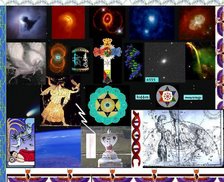
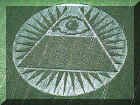





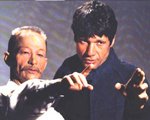


































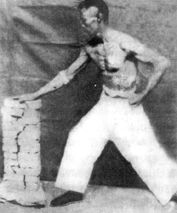














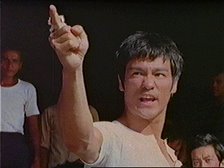







































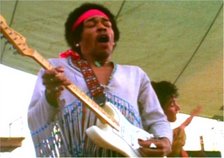





















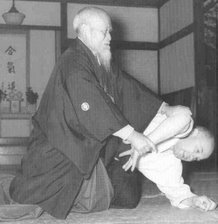


































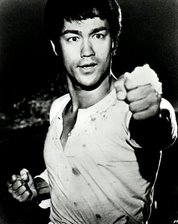
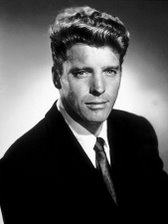
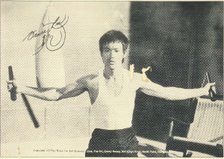


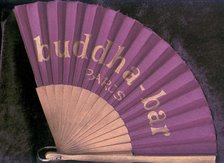
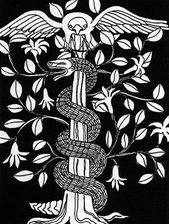


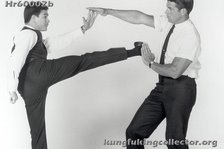
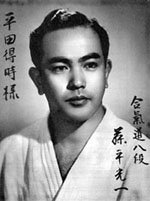




No comments:
Post a Comment